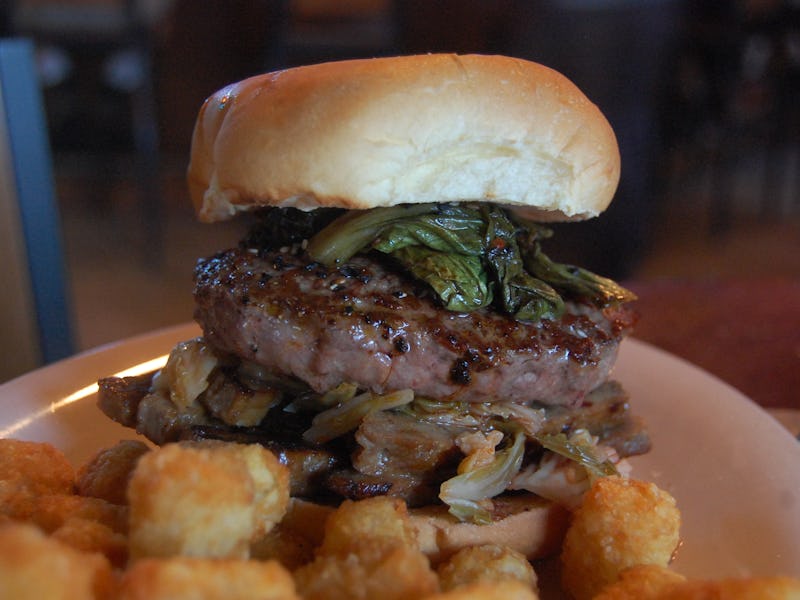Does Eating Cancer Tumors Give You Cancer? Probably Not, but Put the Burger Down
Contagious cancers cause tumors to form when cancer cells remain intact. Cooking and eating prevent that from happening.

If the USDA has been doing its job right — hardly a given — you’ve probably never eaten a tumor. The federal agency doesn’t allow animals with cancer to be sold for consumption; in fact, just last month, the federal government sentenced the foreman of a California slaughterhouse to two years in custody for attempting to sell meat from cows with eye cancer. Cancer is scary and the thought of eating it is even scarier. But imagine that the California cancer purveyors pulled it off: Would anyone have gotten sick?
To say that eating cancer would give you cancer is to suggest that cancer is contagious. While this is true in rare cases, it suggests, broadly, that cancer is itself a physical thing that can be “caught.” It’s not. Cancer is more of a process than a thing itself. When the right combination of mutations build up in a cell’s DNA, that cell goes rogue, dividing uncontrollably until it forms the mass of cells we call a tumor. Ultimately, a tumor is a clump of cells that happens to be proliferating at an abnormal rate. But it is a clump of cells nonetheless — just like the shield-shaped clump of cow muscle cells that make up your T-bone — one that will stop proliferating once the organism it comes from is dead. So, if a cow’s got a tumor in its chest, the brisket that’s ultimately cut out of it will, sure, contain a cancerous tumor, but that’s not technically all that different from saying it contains a mass of dead cells.
Cooking said mass and running it through the acid storm that is human digestion would break down its component cells into their essential parts: mostly strings of amino acids and globular fats, with some branched sugars sprinkled throughout. Where — or what — exactly, is the cancer now?
Still, the USDA rules exist for a reason. They’re less about enforcing what we know about eating cancerous meat than about protecting us from known unknowns. We assume that a tumor cell from a cancerous animal can no longer spread cancer once the animal is dead. And, for the most part, lab testing seems to indicate that we’re right. But biology always has caveats: Over the years, scientists have discovered certain types of cancers that can spread like a contagious disease when their cells manage to remain intact.
The type of cancer that spread through the Tasmanian devil population, for instance, was spread by saliva. Tumor cells floating in one devil’s saliva were physically implanted into another when play time got bite-y. And we know this phenomenon isn’t limited to marsupials. In 1986, a lab worker accidentally injected herself with colon cancer cells and developed a tumor in her hand.
The possibility of contagion makes cancer much scarier than it already is. But the thing to keep in mind is that all contagious cancers — at least, the ones we know about — require tumor cells to survive intact. We can probably rest assured that meat from cows with cancerous eyes, even served super rare, won’t pass on any traces of cancer along because our digestive systems destroy cells without mercy. Still, eating meat — cancerous or not — poses a risk of exposure to carcinogens.
Why push your luck?